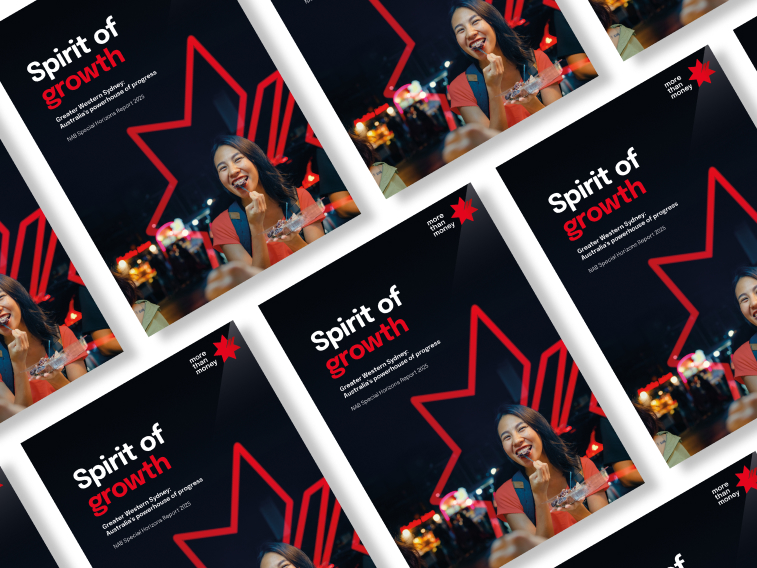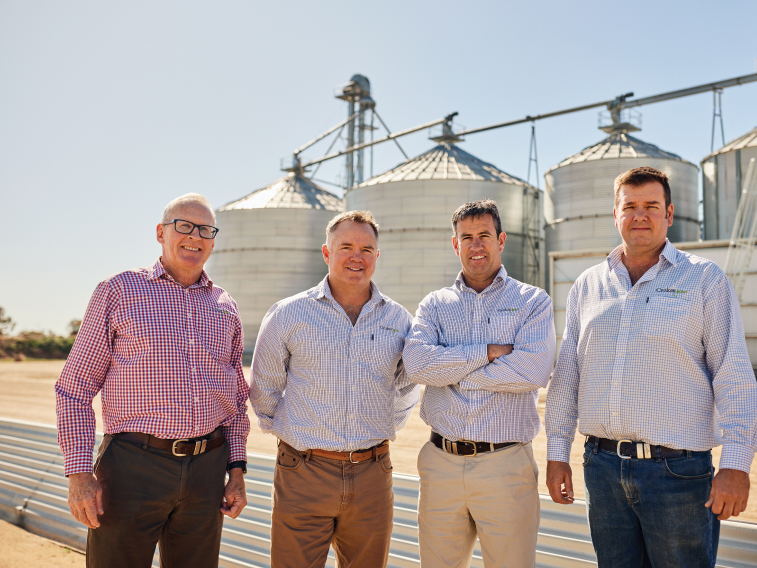Download the latest NAB Horizons Special Report for expert and data-led insights on the state of play in Greater Western Sydney.


Report
For over 50 years, Croker Grain has been a respected name in the grain processing world, and today its products are eaten around the world.

If you started your day with cereal, chances are you started it with a Croker Grain product.
Some of the most celebrated brands in Australia are Croker customers. Most of the oats for Uncle Toby’s breakfast cereals, barley for Milo, and much of the wheat for Sanitarium have passed through a Croker silo.
The company has been buying, handling and marketing grains for over half a century. But it continues to adapt as the industry evolves and customer demands change over time.
“When we first started, it was bags on the back of a truck and heavy manual lifting,” says Croker Managing Director Jason McPherson.
“Today it’s all big machinery and bulk efficiencies.”
Based out of Marrar in the Riverina region of New South Wales, Croker operates several storage and handling facilities in the region, trading in grains and pulses.
Some of the biggest food manufacturers in Asia also choose Croker products. While the company has the scale to compete on the global stage, handling over 150,000 tonnes per year, Jason says it’s the focus on quality that makes the deals happen.
Growers also appreciate Croker’s commitment to getting the product right. Building and maintaining strong relationships is the Croker way and some Riverina producers have been working with the company for decades, attending its pre-sowing barbecues and pre-harvest market updates.
Like many agricultural businesses, one of the biggest risks Croker faces is drought. The diversity of suppliers, product lines and markets helps the company spread and reduce that risk. Croker also has a relationship with a downstream feedmill, which it uses as a hedge against drought conditions.
But as an exporter, Croker is also exposed to currency fluctuations. The company uses NAB’s foreign exchange hedging facilities to protect against movements in the US dollar and other foreign currencies.
Jason says the relationship with local bankers, and the trust in the partnership with NAB, makes Croker’s banking activity very easy.
“They trust us as a company; they can see our positions in grain, our monthly mark-to-market, that we’ve bought and sold this amount. And we know we could make a phone call and things just happen. You don’t have to worry about trusting somebody that you don’t know.”
As Croker enters its sixth decade in the industry, Jason says that maturity has given it the confidence to back itself. When COVID made container shipping difficult, for example, Croker stuck to doing what it does best, rather than scrambling to pivot to bulk handling.
But the greatest lessons of experience have been the value of building relationships and diversifying to protect against risk.
“Over the last 50 years we have faced many challenges, but without these bumps in the road we wouldn’t have the experience and knowledge we do today,” Jason says.
© National Australia Bank Limited. ABN 12 004 044 937 AFSL and Australian Credit Licence 230686.